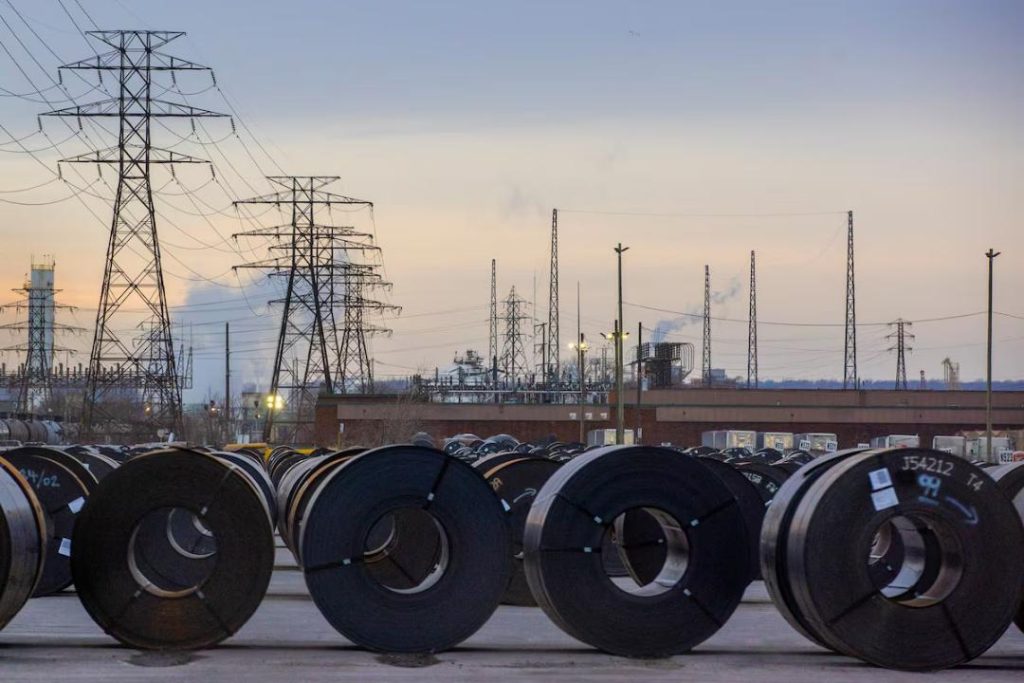
US Tariffs Hit Canada’s Steel & Aluminum Industry, Job Cuts Begin
The ongoing trade tensions between the United States and Canada have had a significant impact on Canada’s steel and aluminum industry. The imposition of US tariffs on steel and aluminum imports has led to major job losses in Canada, with at least 200 workers affected, according to Marty Warren, National Director of the United Steelworkers.
One of the most recent examples of the devastating effects of these tariffs is the decision by Canada Metal Processing Group to cut 140 jobs due to the “threat of incoming tariffs”. This move is a stark reminder of the economic uncertainty and instability caused by the US tariffs.
The situation is likely to worsen in the coming days, as more tariffs are set to take effect on April 2. Economists are warning of greater fallout ahead, and the potential long-term damage to Canada’s steel and aluminum industry.
The US tariffs on steel and aluminum, which were imposed last year, were initially intended to protect American industries from what the US government deemed to be unfair trade practices by Canada and other countries. However, the tariffs have had a disproportionate impact on Canada’s steel and aluminum industry, which relies heavily on exports to the US.
The US tariffs have led to a significant increase in the cost of production for Canadian steel and aluminum manufacturers, making it increasingly difficult for them to compete in the global market. Many Canadian companies have been forced to reduce production or even shut down entirely, resulting in significant job losses.
The impact of the US tariffs on Canada’s steel and aluminum industry is not limited to job losses. The tariffs have also had a significant impact on the country’s economy as a whole. The Canadian economy is heavily reliant on trade with the US, and the tariffs have disrupted this trade, causing economic uncertainty and instability.
The situation is particularly concerning for Canada’s steel and aluminum industry, which is a significant contributor to the country’s economy. The industry is a major employer in many parts of the country, and the job losses caused by the US tariffs are having a devastating impact on local communities.
The Canadian government has been vocal in its opposition to the US tariffs, and has taken steps to try to mitigate their impact. However, the government’s efforts have been met with resistance from the US government, which has refused to lift the tariffs.
In the meantime, Canadian steel and aluminum manufacturers are being forced to adapt to the new reality of the US tariffs. Many are looking for alternative markets for their products, but this is proving to be a difficult task. The industry is highly dependent on the US market, and finding new customers is a significant challenge.
The situation is also causing concern among Canadian consumers, who are facing higher prices for steel and aluminum products. The tariffs have led to a significant increase in the cost of production for Canadian companies, which is being passed on to consumers in the form of higher prices.
The impact of the US tariffs on Canada’s steel and aluminum industry is a stark reminder of the complexity and interconnectedness of the global economy. The tariffs have had a significant impact on Canada’s economy, and the potential long-term damage to the country’s steel and aluminum industry is a cause for concern.
As the situation continues to unfold, it is clear that the US tariffs on steel and aluminum have had a devastating impact on Canada’s steel and aluminum industry. The job losses, economic uncertainty, and instability caused by the tariffs are a stark reminder of the importance of free and fair trade.






